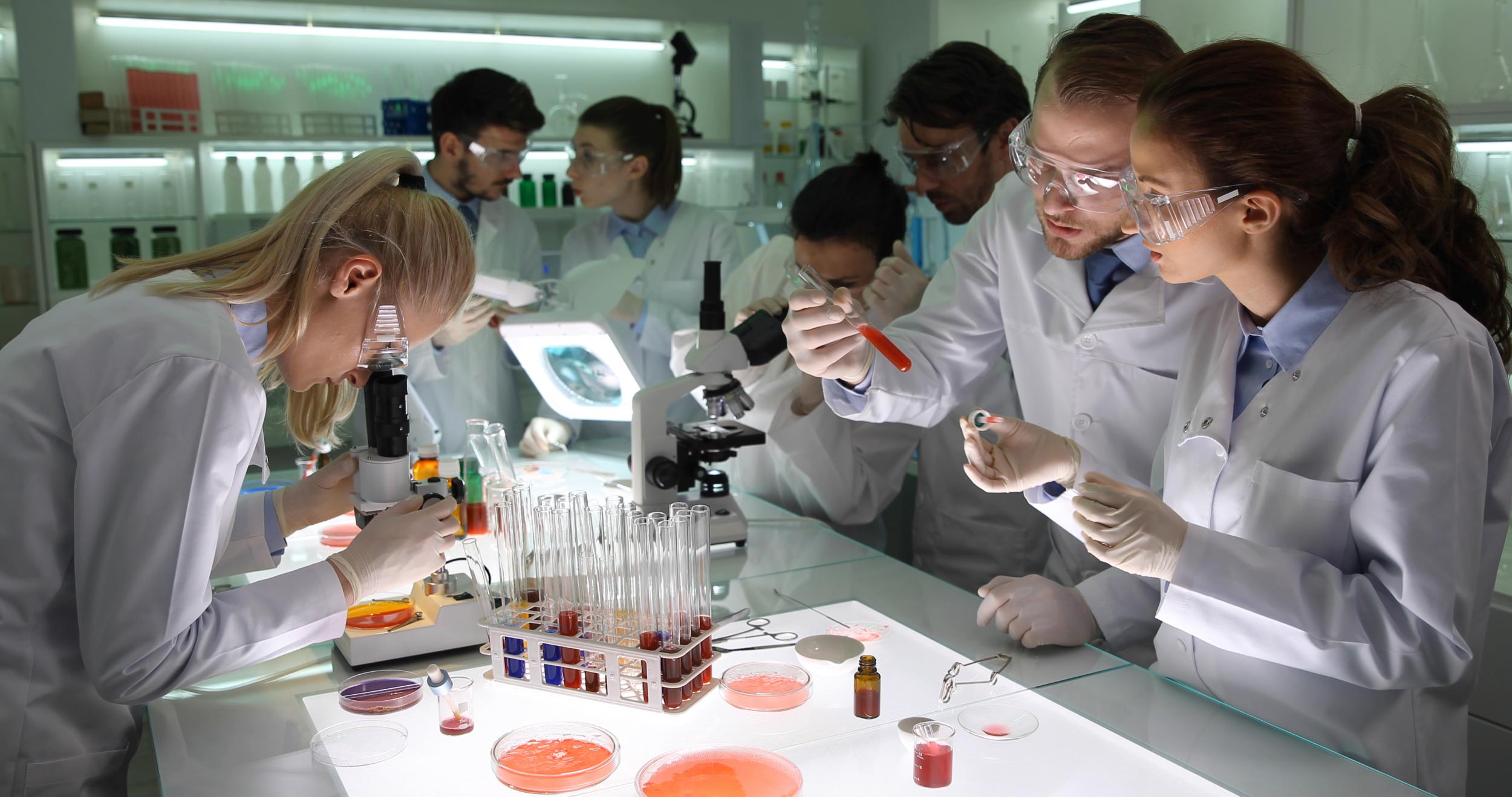Brexit is a direct threat to the glorious scientific collaboration that sustains our modern world
A tiger leap in innovation has been achieved through borderless public-private partnerships between universities, government agencies and companies


Your support helps us to tell the story
From reproductive rights to climate change to Big Tech, The Independent is on the ground when the story is developing. Whether it's investigating the financials of Elon Musk's pro-Trump PAC or producing our latest documentary, 'The A Word', which shines a light on the American women fighting for reproductive rights, we know how important it is to parse out the facts from the messaging.
At such a critical moment in US history, we need reporters on the ground. Your donation allows us to keep sending journalists to speak to both sides of the story.
The Independent is trusted by Americans across the entire political spectrum. And unlike many other quality news outlets, we choose not to lock Americans out of our reporting and analysis with paywalls. We believe quality journalism should be available to everyone, paid for by those who can afford it.
Your support makes all the difference.When we think of scientific breakthroughs, the tendency is to leap on the Eureka! moments: the creative genius of Archimedes displacing water in his bath or Alexander Fleming noticing the anti-bacterial qualities of penicillium mould in an old petri-dish.
Even today, in a world of high-tech laboratories, vast international teams, and big data, there is still a temptation to put a single human face on scientific progress. In truth, the moments when a Thomas Edison, Albert Einstein, or Alexander Graham Bell work by themselves to make a scientific breakthrough are rare.
Projects are now often almost entirely collaborative. And that is why, just as much as individual flashes of brilliance, modern science needs teamwork. In short, it depends on the kind of free-wheeling international collaboration that could be imperilled if the world retreats into nationalism. Brexit, and the ideologies that have driven it, are just such a threat.
A 2015 study by the Journal of the Association for Information Science and Technology found that in the beginning of the twentieth century, single-authored papers accounted for 87 per cent of research in natural and medical sciences. Yet, by 2011, that number had plummeted to 7 per cent. Papers with 11-20 authors, meanwhile, increased over 20 fold.
Similarly, the majority of patent applications were completed by individuals for much of the twentieth century. Even by 1991, when technological advances were well underway, lone applications still stood at over 25 per cent. By 2015, however, single applicants accounted for just 10 per cent of patent grantees in the US, and 15 percent in Europe.
You might wonder why science has become deeply collaborative? In a word: complexity. Science has become so specialized that teams need members with different knowledge and expertise. The research they produce is much stronger for being able to call upon their diversity of knowledge. Teamwork and diversity bring fresh ideas and perspectives, and can help weed out poor ideas at an early stage.
As the Scientific American explains, collaboration “shares costs, allows pursuing complementary lines of effort, and helps avoid duplication of effort.” The lone genius, in other words, is no match for the collective wisdom of a team. Eureka! is now more likely to be shouted out by a chorus than a lone genius in the bathtub.
Over the last few decades we have lived in a world where technology, better long-distance communication, open data and interdisciplinary pursuits have made it easier to bring together global expertise.
It’s no coincidence that the majority of patents now issued each year are to multinational corporations – enterprises that have the financial clout to put together brilliantly creative design, engineering and science teams from around the world. They build and service their staff with high-spec laboratories and research environments, and have the capital to invest in R&D. We need only look at the number of tech patents held by tech giants such as IBM, Samsung, Google, Apple and Nokia for evidence of their advantage.
Meanwhile, cooperation between organisations has exploded. Between 2009 and 2015, global patenting activity doubled to 2.5m disclosed innovations. This tiger leap in innovation has been achieved through borderless public-private partnerships between universities, government agencies and companies.
This is not to say individual inspiration is obsolete. We rightly celebrate great minds for their ideas or discoveries that have pushed boundaries. Through science prizes we champion prominent exceptional scientists who have made a difference, and who have enriched our lives in ways that is difficult to calculate. Regardless of how complex and collaborative the science, we remain indebted to the individuals who had the insight and the grit to challenge the conventional wisdom.
Take Frances Arnold. In 2016, she was awarded the Millennium Technology Prize (MTP) in recognition of her work on "directed evolution". In 2018, she went on to win the Nobel Prize in Chemistry for her work on the “directed evolution of enzymes”, the biological compounds that power chemical reactions in living organisms.
Arnold’s processes, which have been described as “directing evolution in a test-tube” have led to the development of a range of new drugs and products, ranging from medicine for autoimmune diseases to new modes of production for renewable fuels, were opposed by the weight of scientific opinion at the time. Arnold worked as part of a team, but her ideas may never have come the fore without her vision and robustness in carrying on despite facing scepticism from peers.
Equally, an individual scientist can only flourish in a rich ecosystem. Throughout Europe frictionless free-movement of scientists allows teams to draw upon the best expertise and best minds, across borders, and reach breakthroughs.
However, there are question marks over the future of this free flow of information, resources and people. A 2019 survey from the Royal Society of Chemistry suggests that a no-deal UK departure from the EU could harm scientific breakthroughs. Nearly three quarters of professionals are concerned about this specific possibility, as it would lead to lost access to funding, international facilities and collaborative networks.
As we celebrate the individual, we must also always think of the collective. Personal excellence should be recognised and rewarded, but we must protect the collaborative process on which it depends.
Professor Marja Makarow is Chair of Technology Academy Finland.
Join our commenting forum
Join thought-provoking conversations, follow other Independent readers and see their replies
Comments